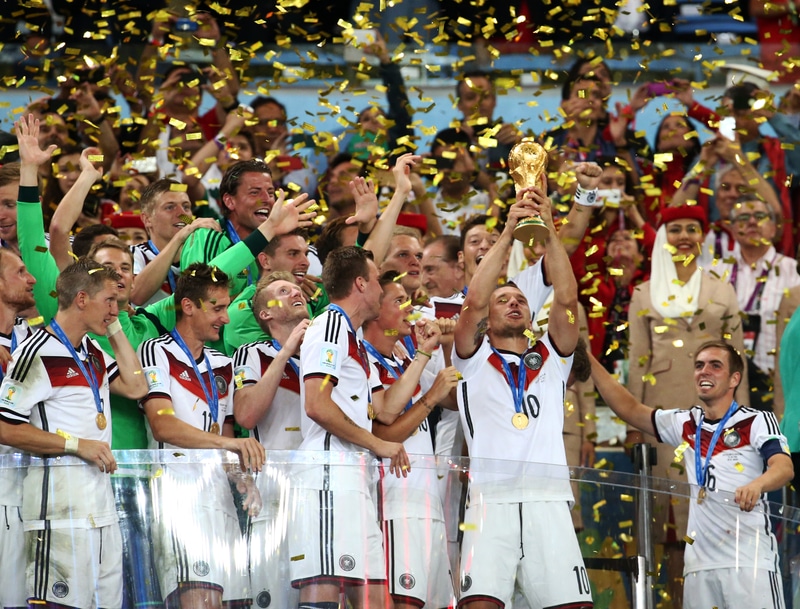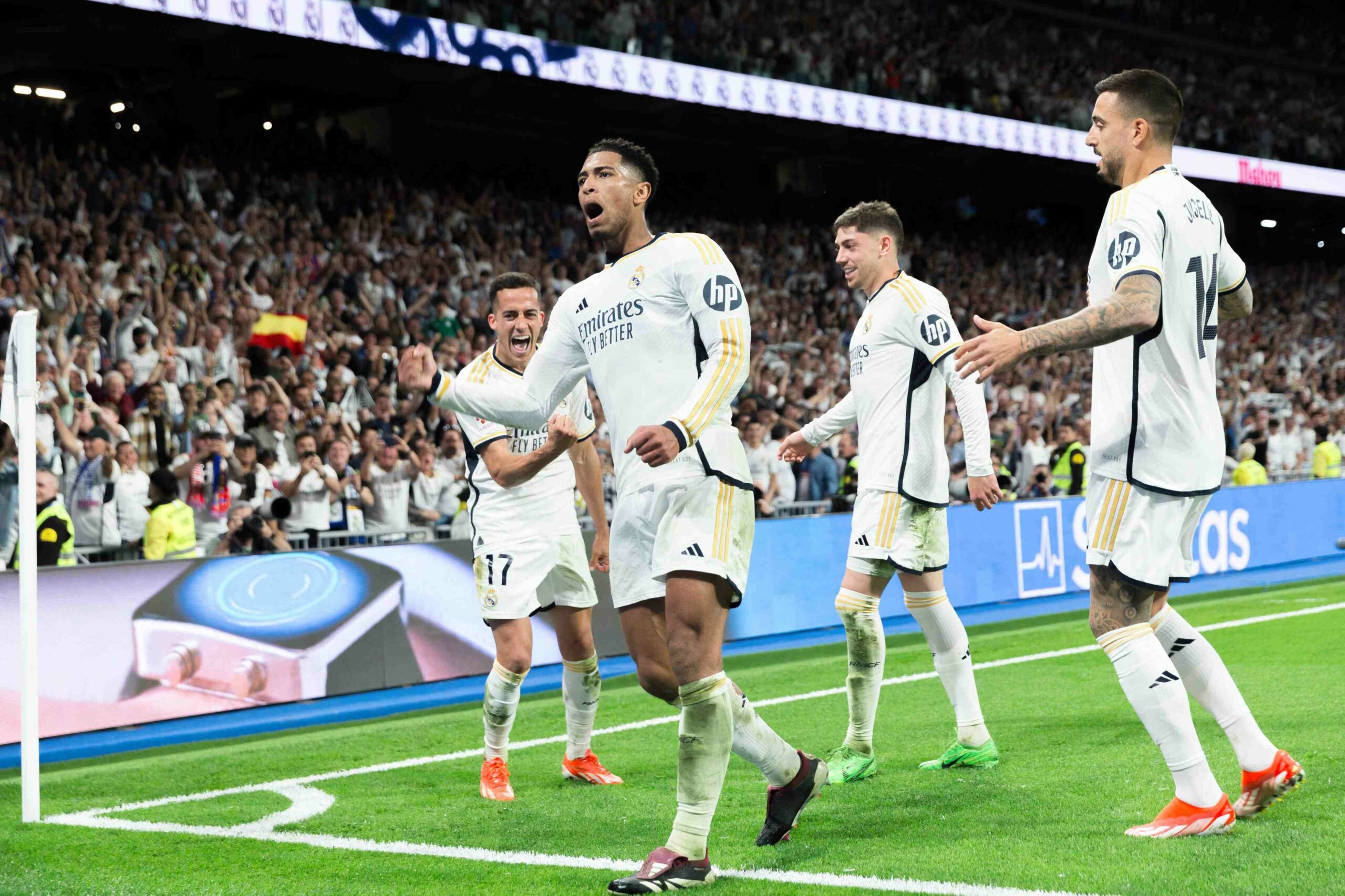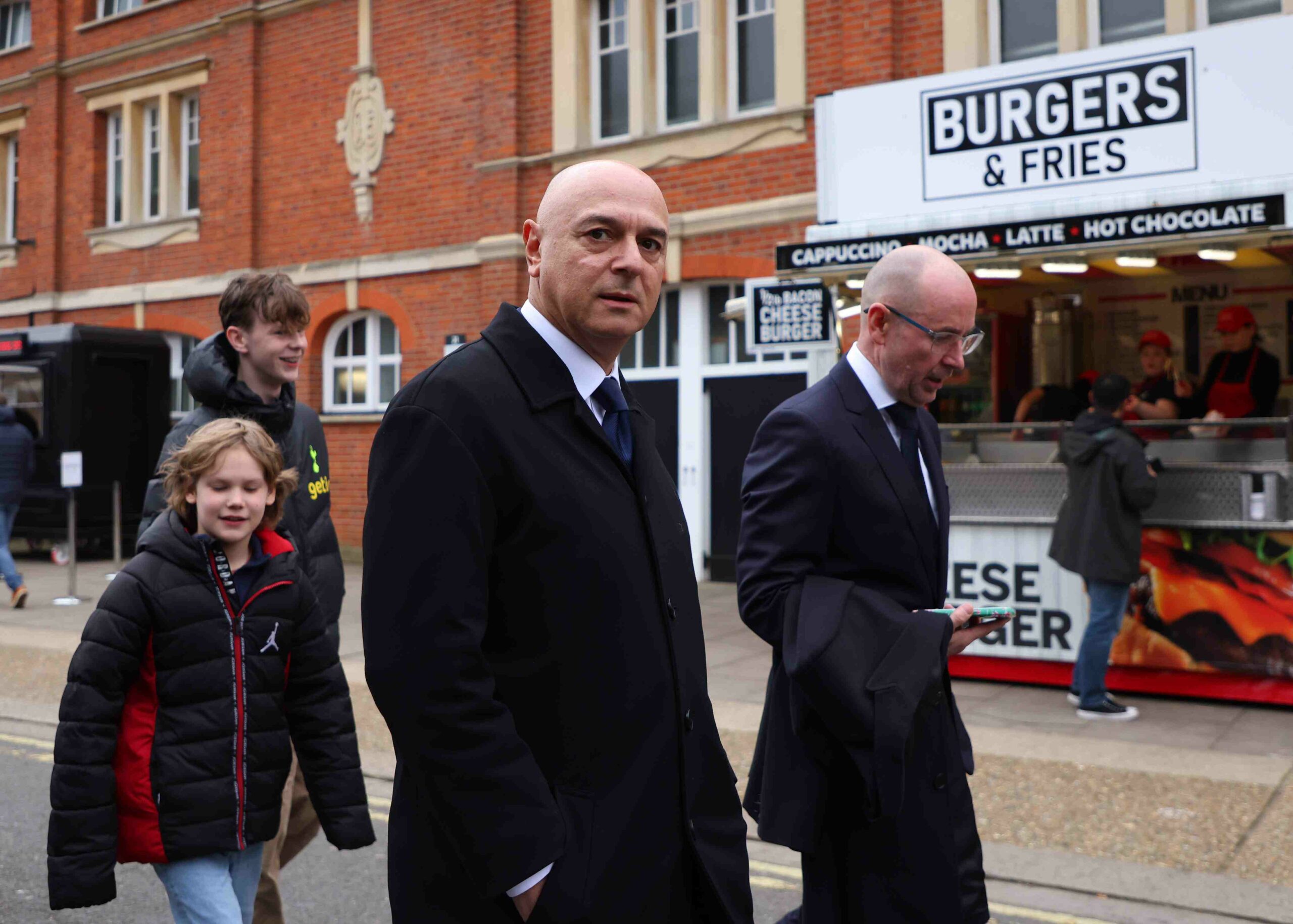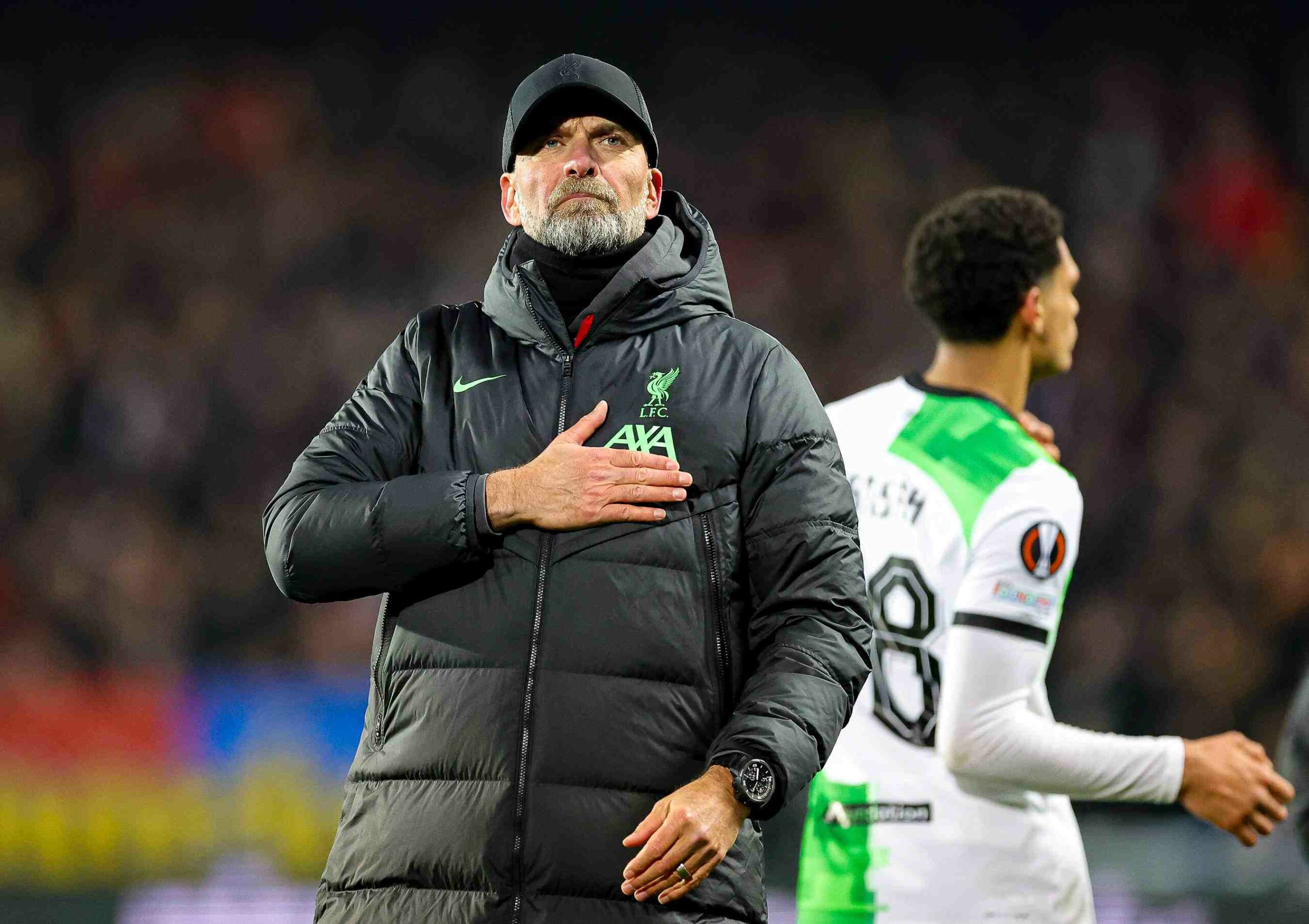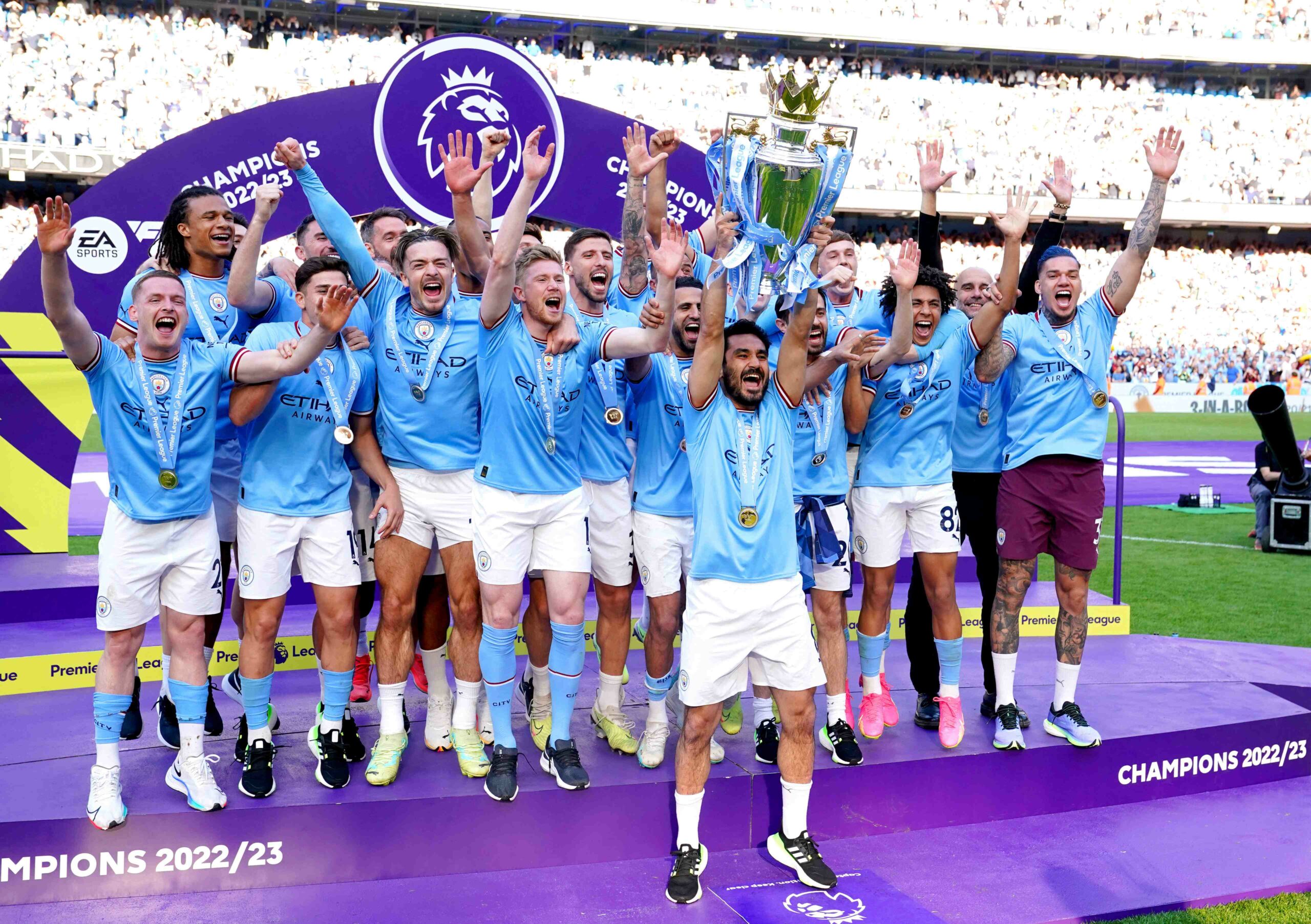8 Years since Mineiraço- Germany demolished Brazil 7-1 in the Brazil World Cup 2002
Mineiraço is the Brazilians’ name to one of the most painful defeats that their national team ever had in football history.
If we look back at the World Cup most one-sided games ever played, there is one matched that will probably echo for eternity:
Brazil v Germany, 1-7 meltdown in the semi-finals of Brazil 2014.
The Brazilians waited 64 years so that they could finally, somehow, forget the Marcana disaster, the sporting tragedy of the 1950 World Cup final.
The Germans waited for 14 years to get bag their fourth winning in this competition and showed superiority throughout the tournament.
We tried to recapture the atmosphere that surrounded the game, that later on became one of the most memorable performances in football history.
Starting lineups- this might be where it all started:
Brazil formation and stating 11:
4-2-3-1
J Cesar (GK), Maicon (RB), Dante (CB), D Luiz (CB/C), Marcelo (LB), Luiz Gustavo (DM), Fernandinho (DM), Hulk (LW), Oscar (AM), Bernard
(RW), Fred (SS)
Thiago Silva (auto-ban for yellow cards) and Neymar (back injury), perhaps the two most important players for the Brazilian team, had to watch the game from the sidelines.
Brazil took the pitch with a somewhat defensive approach, with two defensive midfielders basing their game on ball possession (52%).
The game philosophy of Luiz Felipe Scolari was unorthodox, to say the least, for the Brazilian mentality, and lack that “Ginga“, the illusiveness and magical touch that Brazil was so fond of.
Looking back at the starting 11, Neymar was probably the only player who could have brought that Samba rhythm to the pitch. When he was off, the whole team seemed lost and lacking creativity.
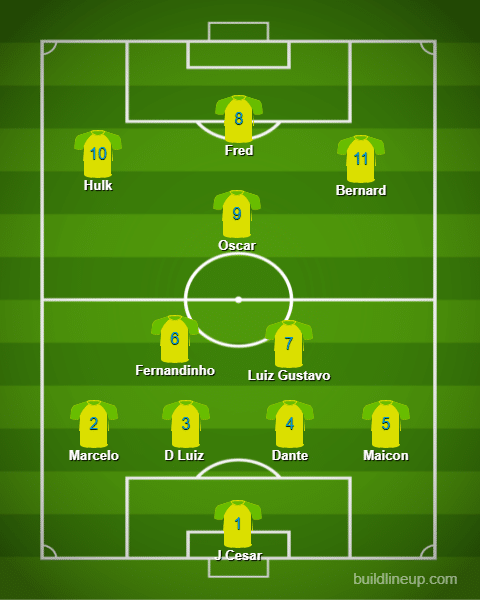
Defensive Formation based on ball control and possession in the back-end of the filed
Germany Formation and starting 11
4-3-3
M Neuer (GK/C), P Lahm (LB), J Boateng (CB), Hummels (CB), B Höwedes (LB), B Schweinsteiger (CM), S Khedira (RCM), T Kroos (LCM), T Müller (RF), M Özil (LF), M Klose (SS)
Die Mannschaft, based mostly on Bayern Munich players who just won another Bundesliga title that year, brought the style of play they were used to already from playing together in Germany.
Most players have played together in the South Africa world cup of 2010.
Yogi Love came prepared to the game after doing comprehensive Big Data research on both the German and the Brazilian sides, being one of the first managers to use this method (and basically change the game of football).
The powerhouse in the middle of the pitch, able to send lithal trough ball and come together as one unit behind the forwards, left Germany with a crowded formation that put constant pressure on the Brazilian defence.
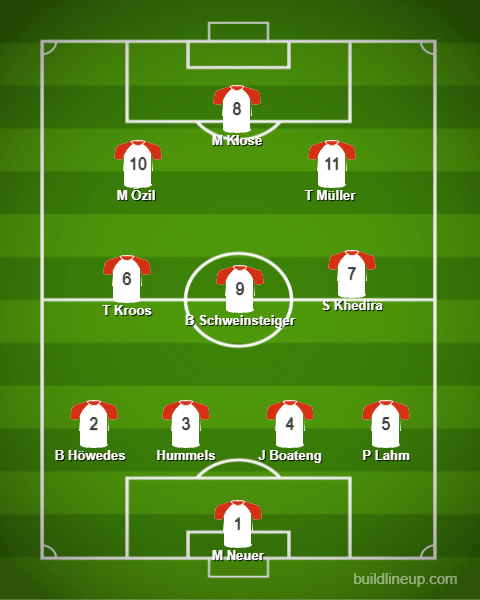
The Midfield is doing most of the work, covering huge grounds and backing up the strikers.
Playing at home puts enormous pressure on the Brazilian team:
In 2014, Brazil hosted the FIFA World Cup for the second time. The last time Brazil hosted the Games, at the 1950 World Cup, they lost the decisive match 2: 1 to Uruguay in Maracana in front of 199,854 spectators in a match that was burned in the history of the team and was nicknamed the “Maracanaço” (Portuguese: Maracanaço).
The Brazil World Cup arrived at the 2014 World Cup as the holder of the Confederations Cup after winning a tournament held on its soil a year earlier. Brazil have not lost an official match in Brazil for 38 years and are considered one of the leading candidates to win the World Cup.
Brazil came to the world cup as an absolute favourite side to win the cup.
It is safe to say that the average Brazilian is also a fan of the national football team. in fact, football is so deeply rooted in Brazil’s culture that the attendance in Brazil 2014 venue was the highest of all time.
The pact stadiums gave the Seleção all the support they ever needed to reach the semi-finals unbeaten throughout the tournament.
But, with expectations going through the roof, players brock down under the pressure of playing in the biggest stage.
Not only the players but also Scolari seemed lost, not only during this game but also throughout the whole tournament.
The Brazilian team won all of their fixtures, but it was easy to see a lack of flow in their game.
The tempo was off, ball possession wasn’t put to use in the attacking end of the field, and Neymar was basically winning games on its own.
How it looked from the stands:
Say what you will about Marcello’s style of play, but he knows how to read the future. Minute 11. The Brazilian left-back deflected a ball to a random corner and grabbed his head. He stuffed his head into his hands as if he knew- that this was the beginning of something big. Everyone could have seen this coming like a wave of fire coming at you, like a tornado, like a tsunami. And Brazil’s natural disaster bega at the 11th minute from a random Marcelo corner.
Thomas Müller, the clinical finisher, did the most anticipated thing. He put the Brazilian team in its place. Defensive error, nonsensical goal as against Croatia, as against Cameroon, as against Chile. These kinds of goals have always been his bread and butter. Müller knew how to place himself to grab the opportunity and score an easy goal.
Then came the second goal. And the third. And the screams. And the fourth. And the shock. And the fifth. And internalization. Within six minutes of heaven, the Manshaft football show sent Seleção to rot under the fiery fire of hell. Three different Germans could have scored; they abused and humiliated as if they pampered each other by sticking the last ball inside the net. These were the most unforgettable minutes filmed on grass, in football. The minutes when the machine dismantled the emotion.
Minutes before the starting whistle, thousands of Brazilians outside the stadium enjoyed the show of what was a rubber doll with blond hair and a German national team shirt with the caption: “Roberta Klose?” And the number 11. Roberta Close is a transsexual model, the joke was clear, but Klose smiled and answered in the only way he could. He scored the second goal (0:2), shattering the old Ronaldo Nazario record and becoming the player who scored the most goals in the World Cup competitions.
In the second goal there were sighs of disappointment. In the third, the Brazilan fans began to leave the Estádio Mineirão. after the seven-goal, it was the most degrading moment for the Brazilians, as the tens of thousands left in the stadium got to their feet, applauded the Germans and whistled in contempt at every touch of the Brazilians.
The final whistle found Brazilian players collapsing on the floor, weeping bitterly. David Louise wetted the grass as if God had created no mechanism to stop tears. They did what they always do. In the end, they raised their hands to thank the audience. They were immensely despised. Luis Felipe Scolari, who just lost for the first time with Brazil in his World Cup career, picked them up and marked “It’s on me”. “Excuse me,” he asked at the press conference, wet in his eyes. Excuse us. I’m in charge. Blame me? It’s not just him. It’s all.
What went wrong in this game?
Looking at the statistic, it looks pretty equal (besides the six-goal difference at the end of the match):
Statistic | Brazil | Germany |
Goals scored | 7 | 1 |
Total shots | 18 | 14 |
Shots on target | 7 | 5 |
Ball possession | 52% | 48% |
But anyone who watched the game will say that it was anything but equal.
Brazil (or should we say Germany) brock the record of conceding the fastest four goals ever scored in the world cup games (6 minutes), and Germany ended up becoming the team who scored the most goals In the FIFA World Cup history.
But Brazil lost this game a long time ago. The lack of Neymar and Thiago Silva helped the loss turn into a defeat, but both the star and the captain (and probably neither Ronaldo nor Romario and Bebeto would have prevented Germany from advancing to the World Cup final). Not because of the missing players what happened happened. Because of the reference to their disadvantage.
For days the Brazilians made Neymar the most incredible Messiah to walk through the Brazilian stadiums. David Louise and Julio Cesar held his game shirt to the anthem; fans wore his masks. Neymar was put on a pedestal, so of course, without him, the team have felt lost even before the match started. After the first goal, 11 players looked for who to focus on, who should they turn to for salvation.
In the end, it really came down to which team was more efficient on the pitch.
It was clear that the Germans came prepped, physically but mostly mentally.
They came as a united front, knowing each other since they played together in the youth team of the national team, with propper guidelines from who later been referred to as one of football’s most remarkable minds in football history.
Each player came with something to prove to the world, but most importantly, they are the most incredible team who has ever come out of Germany.
